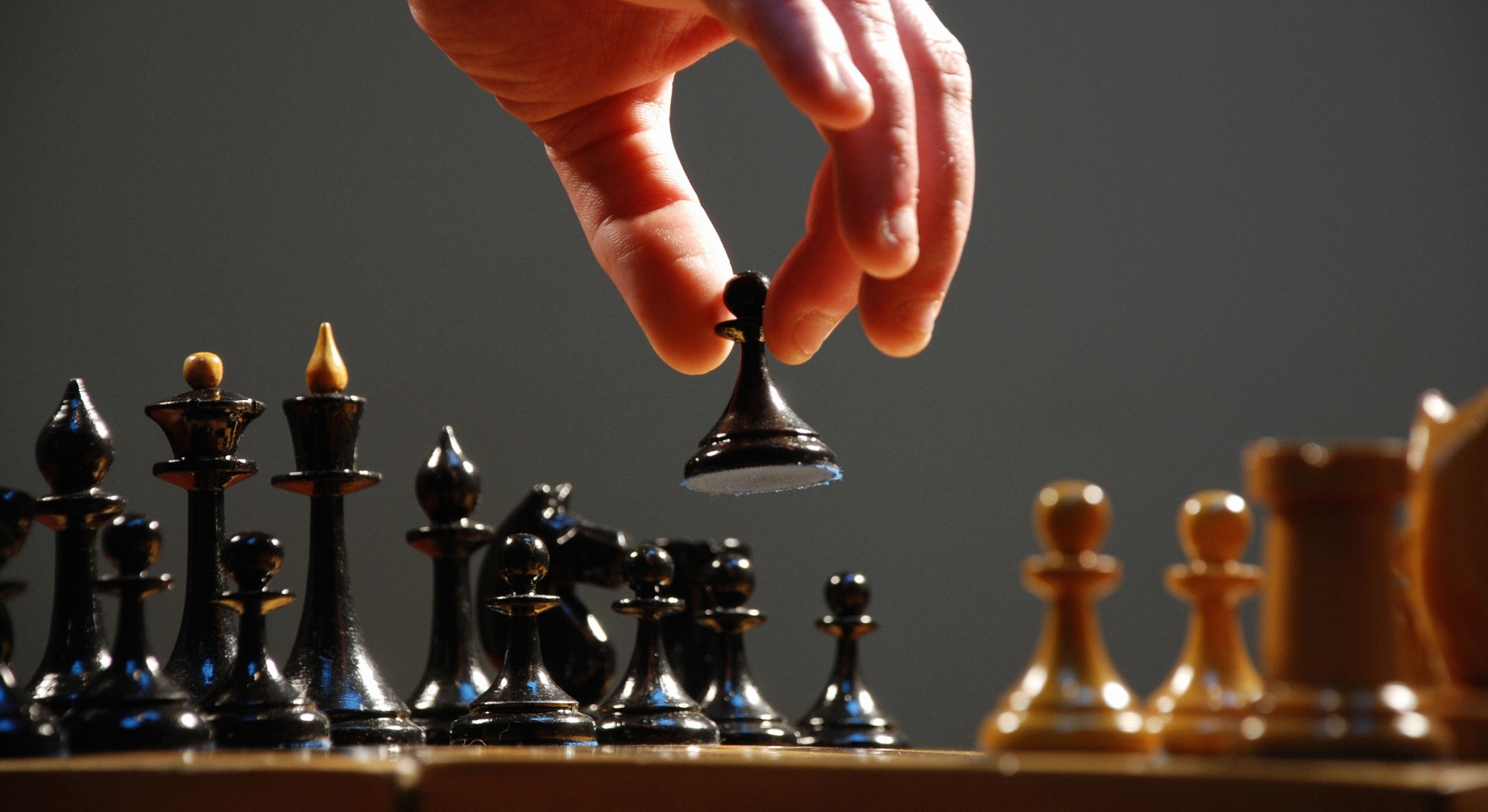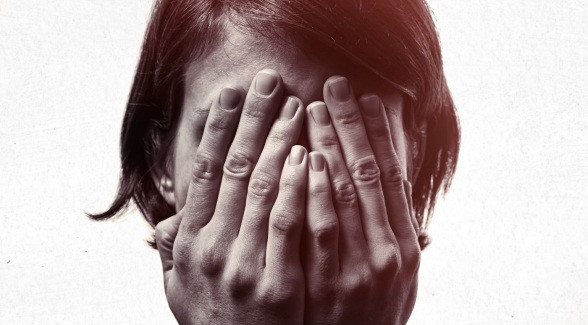William and Steven speak openly about the faith they were raised in and how they have personally identified with it. Religion can provide inner strength, a sense of belonging and community, a purpose in life, and a path to transcendence.
Watch a Short Excerpt:
Transcript (continued):
William: I also want to get back to what you said about the principal and then the action, the practice. Hypocrisy is a big thing for people when they hear or when they're confronted by religion, I should say. Because often they don't really seek it out voluntarily. They just hear someone talk about it or actually get an invitation by someone to find out for themselves whether a church is right for them. And so many people have made their own experiences there. They have witnessed or suffered some rude behavior. Some negative thing happened to them that offended them. And this can happen outside of religion of course, too, very easily. But I think we have this expectation for people to just be more holy and more perfect inside a church community, so that when a mistake does happen it feels so much more shocking and hurtful.
Steven: So a lot of times we have this situation where you go to church, you're friendly, you're kind, you're doing all these kind of nice things. But then you go through your everyday life, and you're not that same person. You're like as an individual I guess not projecting as a as much of a holy or religious or righteous or, whatever word you want to use, devout Christian. And I fell into that trap at the age of like 17, 18, 19, I think, where I behaved one way in church situations because that's how I felt I had to be. Then I felt I could relax outside of church situations and didn't have to behave that way as such. Neither way behaving in a Christian way on the surface was anything bad. It was just a bit more honest, you know. Sometimes I swear. Oh no! Shock, horror! If you were to swear in front of any church member, you'd feel so guilty, or I'm horrific, or they're gonna think bad of me, or whatever. And it's a very strange difference how we respond to things, depending on where we are and who we are with.
William: Yeah. It's really unfortunate, I believe. But I think it's quite normal for communities that you show or you focus on a certain side of yourself more. When I'm on my own at home I'm more contemplating or analytical than when I'm out with friends on the weekend, and I try to bring out my fun side. So that's just a harmless example of how we do this regularly. We have dual identities. But it's really not healthy to have a dual personality or dual identity if they stray too far from one another. So we actually put on nice clothes when we go to church: suits and dresses. Some people put in more effort than others. But that in itself is something that is tricky. It's supposed to encourage good behavior or, I don't know, being more...
Steven: It's supposed to be so you don't focus on the clothes. So if I was just wearing the suit, jacket, tie, and all the women wearing dresses, then you're kind of... it's a uniform. You focus on other things instead. That's the mentality I think, is that if I come in wearing a big T-shirt that has a massive slogan on it or whatever, then people notice that more and pay more attention. I think that's hard the philosophy. Personally, I hate it. I don't think it should be any different, whether you wear that or you wear a shirt and tie. I get it. I get the philosophy. I get the ideology of it. But again it's very much a thing. What is smart and what is not smart is very much seen as cultural.
William: There are cultural norms as well. On the pacific islands men ware this skirt whose name I've forgotten. And that is I suppose a bit formal because it's very common to wear to church there, in places like Tonga. So yeah, this factor of what you wear can be divisive, kind of like it is in society in general, how you judge people quickly by what they wear and how they present themselves. But another reason I heard for it is to show respect. And this is something I personally don't feel much of. But some people think that when they put effort into what they wear and wear these more traditional fine clothes then they are somehow more prepared for setting the mood in church to be respectful of God and the setting you're in. For some people that is what they feel. I've asked around a bit, because I don't like just the assumption being out there without any substantiation of it. But for me personally it doesn't really do anything. I remember even when I turned 12 there was some pressure put on me to start wearing a tie. And I hated it. But I got used to it and I thought "Okay, I should concentrate my rebellion on more useful things, or things that mean more to me than just a fashion choice." So I just go along with it to not make a fuss. But personally I don't put much stock in it.
Steven: Either way it shouldn't matter. This is the highest part about... Whether you follow to the letter wear a shirt and tie and think it's the completely right thing to do for various reasons or you think it's the completely wrong thing to do for various reasons, you're already focusing on the wrong thing. If you're being try to be a good Christian or whatever you're already focusing on like the attire either way... You know, just wear it, get on with it. Tat sounds like blind faith. But actually you've realized it's more important about the internal: Am I a good person? Am I kind and loving? It's almost like if we criticize someone for going to church wearing all the smart ties and whatever else because they feel that's the right thing. It's already showing that we're almost being a hypocrite ourselves because we're just too busy focusing on the outward appearance ourselves. So we're doing what they're doing. We're just mirroring the behavior just from the spectrum. Which again could be talked about for ages about the different philosophies or whatever. But if you just bring it back into what truly matters and hopefully as a Christian that should be you know loving and being kind and happiness. Because again, this is the fascinating thing: There's so many the earliest church has so much philosophy, so much perspective, so much scripture, so much debate, so much discussion. And amongst all that often you we can get lost in that stuff, I think. All religions do in general, I think, where we get these texts, these religious text. And I think that there again there's so many positives. One of the struggles is that the ideology of love and like compassion and empathy is often drowned in philosophical debate or just debate or "What does this mean? What does that mean?" And it's like "Well, what did you do today that was you know Christlike? Well, you know, if Jesus Christ is your hero in all you're like what you want to emulate from the New Testament point of view of going and doing kind things for others; well how did that go this week?" You know, discuss that for three hours or an hour or whatever. Having good philosophical discussions is important as well. There's a lot of coverage for that around and sacred texts and what they teach, but there should be more of balance in my opinion. There should be more of a meeting in the middle. How those things relate to your ability to do good in modern society. Because you know what Abraham or Moses did thousands of years ago might be important to a degree. But does it have any sway on what we do from day to day in our society? Maybe, maybe not. That's a discussion for another time. But does it have any point in how to do good and how to be kind to one another?
William: Right, another question I have is about something similar to the fashion aspect. And that is "How are we doing on the inside, so emotionally, mentally?" People want to present themselves in church like everything is fine and dandy; and I'm not sure why they do it. I guess people in general want to appear like they're okay because they don't want to be a burden to others. The typical opening question "How are you?" is often answered very automatically "Fine, good, perfect, excellent", even though it's not the case. It happens to me all the time. And then "Wait, no actually no. My life right now is really upside down." or "I'm going through a hard time." And obviously that can be private. You don't want to disclose that to just anyone. But I think we could all be a bit more honest and just, I don't know, just admit that it's difficult for us to be at church because we're struggling with something else in life right now, or "I can't help you with this right now because I'm struggling myself". I think approaches like that are totally fine and can give you a better understanding of how people actually are on the inside. Because it can happen so quickly to anyone that you believe everyone is doing perfectly in their life, because they must be following the commandments more than you. They must be more righteous than you. They must be a better person than you. And that's why you're the only one suffering. This can happen in general, on Facebook for example. People get depressed a lot because they only see the great things happening in other people's lives. Because why would someone publish about the hard stuff they're going through? I mean some people do, and that can be helpful. It can also cause another type of prejudice that "Oh, I'm not hanging out with them if they're just negative all the time." Well, maybe they're just being honest. And anyway...
Steven: It's a good good question, a good discussion point and very complex as well, as you just kind of just showed: the fact there's so many different multiple ways you can respond to these things. But I think, so in religion, what you talked about is a great parallel with that, and psychology and mental health at the moment. So again, this is my own personal views. But you talked about being honest about an emotional situation that's difficult, or just even talked about a little bit about it. You don't need to open up completely, because it leads to isolation if you don't. Because you feel that everyone else is doing fine and doing well, because that's what you see, you go "Oh, well I'm doing bad. So I don't feel I don't feel happy. Or I don't feel complete. Or I don't feel good about something, but everyone else is. So it must be different and weird and alone or whatever." So into psychology there's often a teaching about how you can't say the words "Oh, I understand." You know, if someone talks about their situation you can't go "Oh, I understand", because you can't understand that, because you're not in their specific circumstances. And I do completely understand and get that. But we experience the same emotional responses. So you know, as human beings we all have, you know, happiness, sadness, pain, love, joy, bliss, disappointment, jealousy. All these different things that we have, they are what connect us. So in a psychological point of view, actually, when you're discussing something, if someone actually shows they do understand the emotions you're going through it creates a bond, it creates a connection I think as human beings we're lacking in this day and age. It's a lack of community, a lack of connection through things like Facebook and social media projecting false identities of just happiness and other positive things. And that happened at the church scenario of Christian religion, where you project the positive happiness. Because that's, you know... happiness is great. It's good. But actually, if that's but a lie, if you're also struggling, you need to be able to talk about that. You need to be able to talk about those things and actually cry about something that you're struggling with, or talk about it. But you don't feel you can because the way the community currently has almost shot itself in the foot, to use that phrase. You know it's because they're too busy trying to be righteous and good, they forgot how to be human, and how to be honest and open about their emotions, to create those connections.
Other Episodes:
Ep. 51: How Conditioned Are We ?
How much of what you do, think and feel comes from intentional, free chosing? How much of your actions and decisions are pre-programmed? You are the product of your upbringing, culture and genetics. What is out of our control? What can we influence? How can we counteract our predestination?
Ep. 50: What Am I Responsible For ?
Are you taking too little responsibility for your actions, or perhaps too much? How much are you able to understand or determine the consequences of your decisions? Are you in control of anything? Is free will an illusion? Can you do something to improve your thoughts, feelings and relationships with...
Ep. 49: Empathy Can Be A Super Power
Everyone has the choice of either living isolated from other people and their own feelings on the one hand, or to connect with others and their own emotional core. The road towards connectedness involves vulberability and weakness. But it leads to a very rewarding ability that includes deeper understanding of...
Ep. 48: Why Am I Ashamed?
What secrets do you have? What facts about you must never become known to others? What happens in our childhood that implants beliefs in us that hide away for the rest of our life? Can we uncover them deliberately? Can we regain the emotional freedom and levity that playing children...







